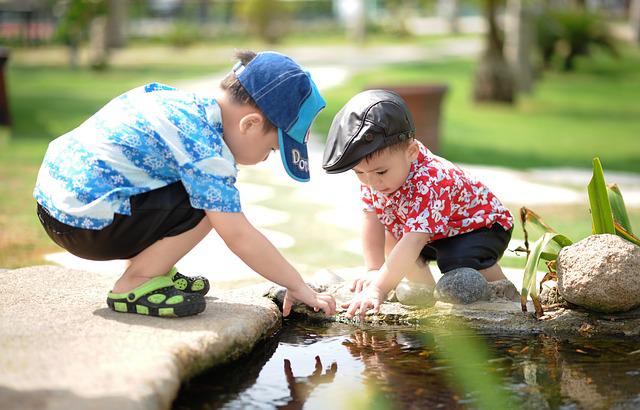Ms. Christina highlighted a LinkedIn post this week that caught my eye in light of recent US events. The post was from Paula Lillard Preschlack and it focused on the capabilities we don’t enable our children with. The post starts off by saying:
“If you think a 3 year old can’t bake, the problem isn’t the child. It’s that adults don’t give little children what they need. So 3 year olds can’t bake, 7 year olds can’t make dinner once a week for their family, 13 year olds can’t make a plane reservation and 18 year olds can’t schedule their own doctor appointment”.
Her conclusion is a question we have seen the answer to first hand (and we love it). “If you can make biscuits when you’re 3, what can you do when you’re 30?”.
We would encourage reading the rest of the post, but our focus in this blog is on something the article didn’t call out. That is that a child needs opportunities to work through social problems, not just the challenges that practical life tasks bring.
As a parent you may ask, “How do I help my child with social skills?”. Much like baking, using the phone to set an appointment, sweeping a floor, or getting dressed every day, maneuvering the minefield of complex social structures takes practice. Getting the social practice in requires the same thing as practical life – opportunities to try. And fail. And then try again. It is tempting as a parent to want to shield our child from the challenges and pain that social life brings. In doing so, you are robbing them of some of the most valuable gifts they can ever receive. Rather than being a shield, we recommend a very different tact.
It is tempting as a parent to want to shield our child from the challenges and pain that social life brings. In doing so, you are robbing them of some of the most valuable gifts they can ever receive.
Be a supporter
When a child encounters conflict with another child, don’t immediately jump in and resolve it. Give the children space to work through the issue and, if physical safety demands, provide guidance through questions. Questions such as “Is what Sally is doing hurting you, or are you choosing to feel hurt” and “If you were in Billy’s place, would you want to be talked to how you are talking to him” provide both diffusion and a sense of encouragement to look at the situation differently than their emotions are guiding them to do at the moment. Whether the conflict resolves itself with or without your guidance (they almost always resolve themselves without intervention), encourage your child to reflect and learn from what happened.
Be an instigator
We don’t mean you should create situations that cause social unrest. When we say instigate, we mean take the opportunity to work with your child on envisioning how to deal with challenges before they occur. Much as previsualization can help adults think through options, children can benefit from the empowerment that comes from knowing they have options and tools to use in a conflict situation. This is a big part of how we approach following up with children when a conflict has occurred during free play time. Helping a child understand that nobody can make you “feel” a certain way and that by practicing using their tools they can avoid a lot of unhappiness is priceless. Ultimately a person who develops strong social tools through practice is in charge of how they respond when a conflict arises.
Be the source of truth
Helping children decipher what is actual conflict is key to how they understand when to react. Attacking others for believing different things or making different choices is a problem with the attacker, not with the one being attacked. At the age levels we work with, these sorts of conflicts almost always stem from parental attitudes that children have picked up on. Whether openly taking offense to being told happy holidays at a time of year when there are more than a dozen holidays for people to celebrate or shouting down a speaker in an auditorium for simply expressing a point of view that you differ on – there are plenty of signs that there are adults among us who never learned to correctly identify what constitutes a genuine and meaningful conflict (one that poses the risk of causing actual harm, or to paraphrase, someone’s fist is now on the tip of your nose). Our tact at school is best paraphrased as “you be you and let them be them” when these sorts of non-conflicts happen, but we honestly recommend and prefer what our own parents taught us. Be tolerant of others if you want them to be tolerant of you. George Washington was a master of this and two and a half centuries later historians are still trying to get a clear picture of his religious and social beliefs. Seems like a good way to be remembered fondly (while also living peacefully).
Be a facilitator
Give your child the freedom to engage in an unstructured social environment. Structured activities are okay in some ways, but ultimately they are adult guided and offer no time for real peer-to-peer social engagement. If your kids are at Greystone House they are getting a lot of free play, but we promise once they hit public school that will end. Unstructured play is where practice using the skills that are required to be a friend, a partner, a community member, and ultimately an adult, happen. One of the best parts of being in The Woodlands is many families don’t have concerns about high traffic roads in their neighborhood. Even a child of five can safely walk by themselves to a nearby friend’s house to play in the back yard. Just like with baking, they can learn the path, rules, and skills needed to get it done on their own. Send them on their way.
Why It Matters
A child who cannot work within complex social structures is not on a good path. Whether they end up feeling unempowered and seeing themselves as a victim or they choose to look to others to fight their battles for them, the result is the same. Socially, they will remain a child. Personally, happiness is hard to find when you can’t find your place in the world. As with all character traits we want our children to develop, they need help and practice. It starts early. You matter a lot Mom and Dad.





